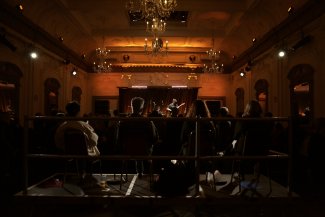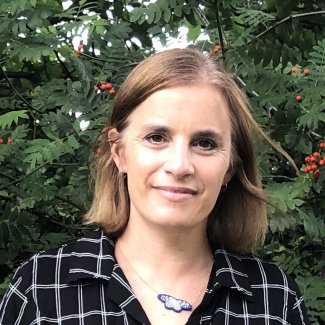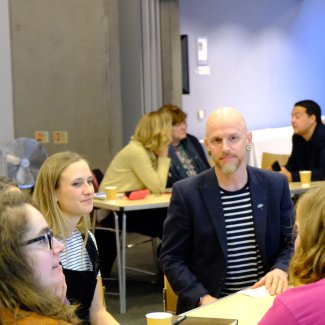

What do you think the music industry can do better to be more inclusive and accessible for recruiting talent?
21/10/2024
We asked our Foundation partners to respond to the following question: What do you think the music industry can do better to be more inclusive and accessible for recruiting talent?
This is a massive question with myriad answers that can go off at different tangents and spirals dependent on many factors. Therefore, as a starting point, I think that having as many entry/access point as possible is crucial and understanding that there is no set pathway. It is also important that the ‘talent’ being recruited is coming from a broad variety of backgrounds that actively champions representation across all protected characteristics and also draws upon all genres on music-making. The ‘music industry’ needs to be willing to support artists from unrepresented backgrounds, make them feel valued, welcome and that they belong.
Stuart Whatmore, Head, Tri-borough Music Hub

Orchestras for All (OFA) believes that investing in inclusive youth leadership is crucial for shaping the future of the arts as well as the career paths of young people.
Cultivating youth leadership isn’t just about giving young people a voice; it’s about empowering them to take active roles in decision-making, fostering a sense of ownership and enabling them to lead the change the music sector so desperately needs.
OFA proudly creates and facilitates these opportunities. This includes inviting young people to join its Youth Board, where participants of the charity’s life-changing programmes can share their view and contribute to its strategy, governance and artistic plans.
To support its core team each season, OFA also hires 10 inspiring Ambassadors (paid roles for NOFA alums), who might not otherwise have had the opportunity to experience playing music with others or gain early experience in the workplace due to the daily challenges they face. Additionally, OFA has introduced a Young Leaders programme that has been specially designed to develop young people’s skills.
This year, OFA also appointed NOFA and Modulo alum, Joelle Sogunro, as Co-Chair to its Board of Trustees. Joelle will be building on the success of OFA’s previous Co-Chair, Beth White, who is another NOFA alum and whose work has already made a hugely positive impact on the charity.
OFA’s first Youth Leadership Coordinator, Elen, said: “By providing young people with opportunities to lead, we not only empower them for their future but also enrich our organisations through their creativity, enthusiasm and diverse perspectives, enabling us to create the positive change we all want to see in the world.”
You can find out more about OFA’s Youth Leadership here.
Orchestras for All

- Advertise widely to increase the pool of applicants and use adverts that are easy to understand
- Create inclusive job descriptions; outline what the job role is and the skills it requires, and avoid jargon
- Hold inclusive interviews; consider reasonable adjustments; and make sure the interview panel is representative
- Think about what types of bias could creep into the interview process; what will be the impact on the interviewee?
- Ask competency based questions; to allow candidates to share experiences and show how they’ll add value
- Agree scoring of each applicant’s answers and be consistent
- State the salary or salary range; you’ll get over 40% more applicants
- Contact Creative Access for more resources, training or support
Josie Dobrin OBE, Executive Chair, Creative Access

“Recognising and supporting disabled talent in music begins with valuing the skills and perspectives that disabled musicians bring to the industry. Ensuring venues for auditions, rehearsals, and performances are accessible is crucial, as it creates an inclusive environment where talent can shine without unnecessary barriers.
Accessibility doesn’t always require a full renovation — often, simple changes can make a significant difference, such as providing level access, adjustable lighting, video tours of your venues, clear signage and accessible toilets. Championing adaptable instrumentation is also vital. With advances in technology, incredible instruments can now be customised to meet different physical needs, allowing musicians to fully express their creativity. By embracing accessible spaces and adaptable instruments, the industry can become a more inclusive place where all musicians can thrive.”
Barry Farrimond-Chuong MBE, CEO Open Up Music
